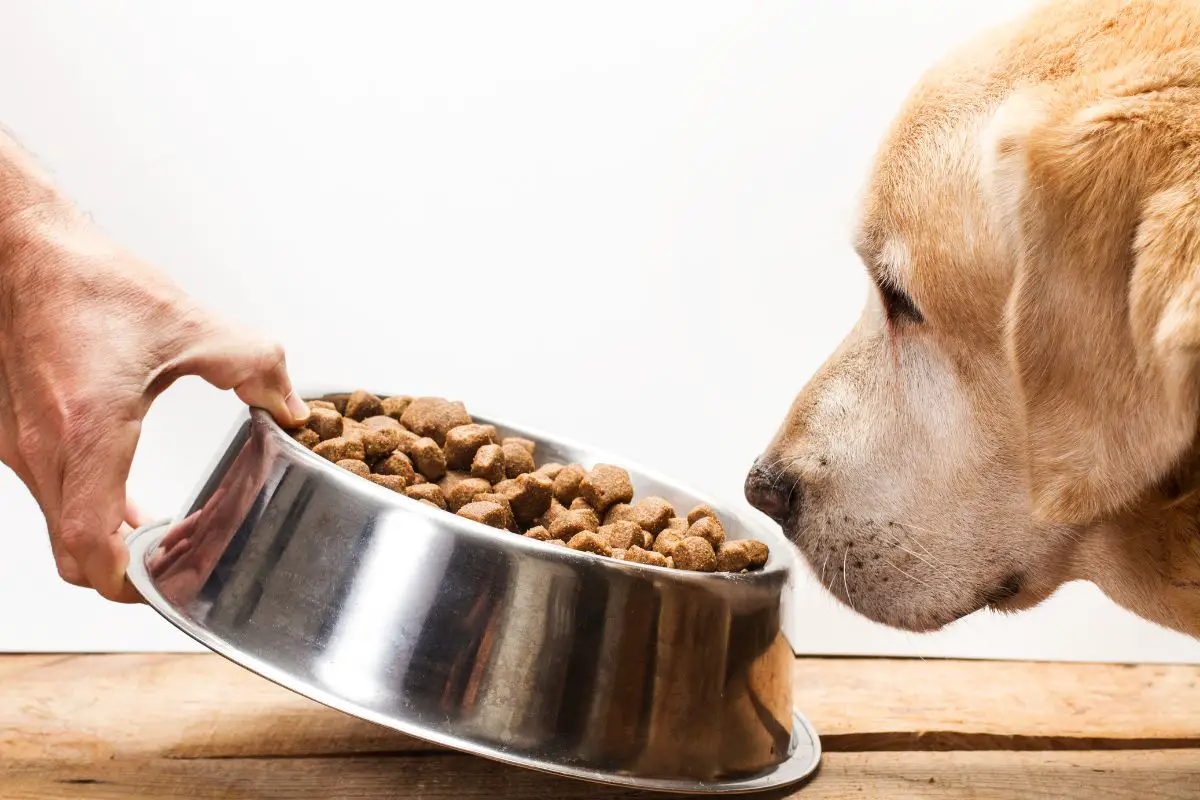As dogs enter their senior years, their nutritional needs change significantly.
Proper nutrition becomes even more crucial in maintaining their health, managing age-related conditions, and ensuring a good quality of life.
This article explores four essential nutrition tips to help your aging canine companion thrive in their golden years.
1. Adjust Calorie Intake
As dogs age, their metabolism typically slows down, reducing their calorie requirements.
Overfeeding can lead to obesity, which exacerbates joint problems and other health issues common in older dogs.
Monitor your senior dog’s weight regularly and adjust their food intake accordingly.
Consider switching to a senior dog food formula, which often has fewer calories and is tailored to older dogs’ needs.
If your dog is losing weight unintentionally, consult with your veterinarian to rule out underlying health issues.
For active senior dogs, maintain their calorie intake but focus on high-quality, easily digestible proteins.
Remember that individual needs vary, so work with your vet to determine the ideal calorie intake for your specific dog.
2. Increase Protein Quality and Digestibility
High-quality, easily digestible protein becomes increasingly important as dogs age.
Senior dogs often need more protein to maintain muscle mass and support their immune system.
Look for dog foods with animal-based proteins listed as the first ingredient.
Consider adding lean meats, eggs, or fish to your dog’s diet to boost protein intake.
Avoid low-quality protein sources or fillers that may be harder for aging digestive systems to process.
For dogs with kidney issues, consult your vet about the appropriate protein levels and sources.
Remember that the quality of protein is just as important as the quantity for senior dogs.
3. Add Essential Fatty Acids
Omega-3 and Omega-6 fatty acids are crucial for maintaining cognitive function and joint health in older dogs.
These essential fatty acids can help reduce inflammation, support heart health, and maintain a healthy coat.
Consider adding fish oil supplements or incorporating fish like salmon into your dog’s diet.
Flaxseed and chia seeds are plant-based sources of Omega-3s that can be added to your dog’s food.
Be cautious with dosage, as too much can lead to digestive upset or interfere with blood clotting.
Always consult with your veterinarian before starting any new supplement regimen.
Monitor your dog’s response to added fatty acids and adjust as needed.
4. Incorporate Joint-Supporting Nutrients
Many senior dogs suffer from arthritis or other joint issues that can be managed through nutrition.
Glucosamine and chondroitin are popular supplements that can help maintain joint health and mobility.
Look for senior dog foods that include these joint-supporting nutrients or consider adding supplements.
Antioxidants like vitamin E and C can help reduce inflammation and support overall joint health.
Turmeric, known for its anti-inflammatory properties, can be a beneficial addition to your dog’s diet.
Green-lipped mussel is another natural source of joint-supporting nutrients gaining popularity in canine nutrition.
Always introduce new supplements gradually and monitor your dog for any adverse reactions.
Hydration is Key
While not a specific nutrient, proper hydration is crucial for aging dogs and deserves special attention.
Senior dogs may be prone to dehydration due to decreased thirst sensation or mobility issues.
Ensure fresh, clean water is always available and easily accessible for your older dog.
Consider adding water to dry food or incorporating wet food into their diet to increase moisture intake.
Some dogs may prefer moving water, so a pet fountain could encourage more drinking.
Monitor your dog’s water intake and urine output, as changes could indicate health issues.
Proper hydration supports kidney function, aids digestion, and helps maintain overall health in senior dogs.
Tailor to Individual Needs
Every dog ages differently, and nutritional needs can vary based on breed, size, and health conditions.
Regular check-ups with your veterinarian can help identify specific nutritional needs for your aging dog.
Some seniors may benefit from specialized diets for conditions like kidney disease, diabetes, or cognitive dysfunction.
Be prepared to adjust your dog’s diet as they continue to age and their needs change.
Pay attention to your dog’s preferences and eating habits, which may change with age.
Consider breaking meals into smaller, more frequent portions if your senior dog has trouble eating larger meals.
Always introduce dietary changes gradually to avoid digestive upset.
Conclusion
Proper nutrition plays a vital role in maintaining the health and well-being of aging dogs.
By adjusting calorie intake, focusing on high-quality proteins, adding essential fatty acids, and incorporating joint-supporting nutrients, you can help your senior dog thrive in their golden years.
Remember to consult with your veterinarian to create a tailored nutrition plan that meets your aging companion’s specific needs.
Share this article on Facebook to help fellow dog owners provide the best nutrition for their senior pets.
Your friends might appreciate these tips for keeping their aging furry family members healthy and happy!
SHARE now with your friends!
- Hero Farm Dog Survives Epic Battle with Coyote Pack - December 9, 2024
- The 10-Minute Bedtime Routine That Changed My Dog’s Sleep Forever - November 29, 2024
- Creating a Safe Space for Nervous Pets: Your Guide to Pet-Friendly Havens - November 25, 2024

